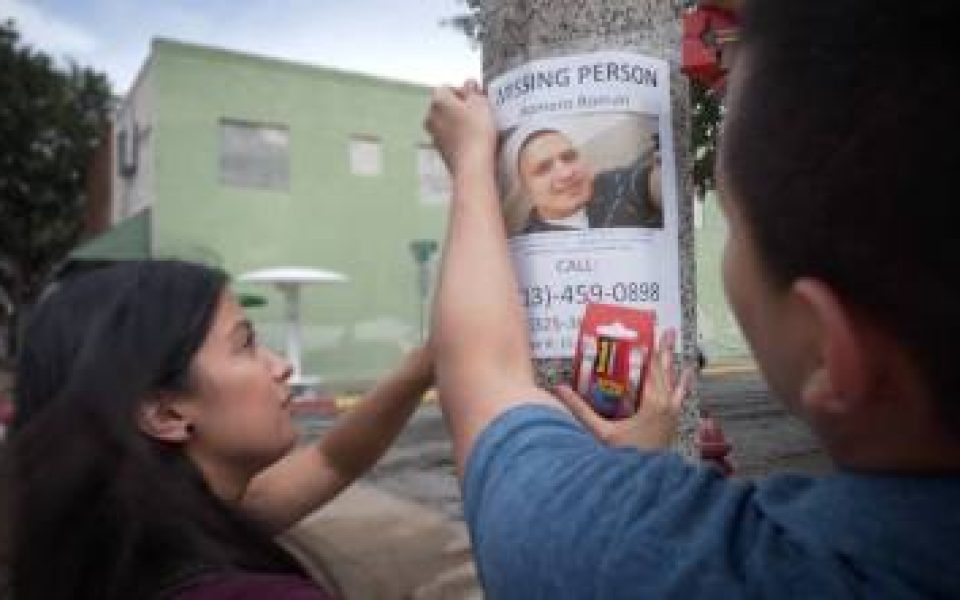Dirs. Lisa Molomot, Jeff Bemiss, USA, 2020, 80 min.
Screening virtually. Learn more here.
More than 20,000 people have died in Brooks County, Texas, because of a deterrence policy for migrants set by Border Patrol in 1994.
That’s the stark reality upon which this tragic documentary about the unspoken experiences of Mexican immigrants to the United States builds its story.
Over the course of about an hour and a half, the film interviews experts and activists who delve into what the National Institute of Justice has called a “silent mass disaster.”
Dr. Kate Spradley, biological anthropologist at Texas State University, informs students that most migrants die venturing around the US Border Patrol Interior Checkpoint due to dehydration and exposure. In her lecture, she explains Operation Gatekeeper, Operation Safeguard and Operation Hold the Line were started to shut down borders that were easier to cross, funneling migrants into more dangerous crossing territory.
“They knew there was gonna be a large death toll, but they assumed that that would prevent more migrants from coming,” Spradley says. “And it didn’t.”
With her assistant Krista Latham, Spradley processes bodies found in mass graves in Brooks County.
The family of Homero Roman, a man who has been missing for two years at that point, describes how he crossed the border into Brooks County and went missing afterwards. Same for Juan Salazar. The title of the film alludes to the many cases of migrants that have gone missing.
Interspersed with the story of the Roman family, the film also highlights the clash between those who are working to help migrants and those who oppose their crossing.
Eddie Canales, executive director of the South Texas Human Rights Center since 2013, has water stations on seven ranches in Texas and is helping the family of missing person Juan Salazar. On the opposite end, Michael Vickers, a veterinarian and ranch manager, says the borders should be closed due to terroristic elements. He states he will not allow water stations for migrants on his ranch, citing the water jugs are used to smuggle drugs. Whether it’s due to reasonable suspicion or prejudice, Vickers believes Canales is guilty of working with migrants to assist smuggling, and he’s waiting to catch him.
The end result is a heartbreaking, yet informative look at the humanitarians, activists, law enforcement agents and families that confront immigration and its challenges. And solutions are as hard to come by as water in the desert.
Find our full guide to RiverRun 2021 here.
Join the First Amendment Society, a membership that goes directly to funding TCB‘s newsroom.
We believe that reporting can save the world.
The TCB First Amendment Society recognizes the vital role of a free, unfettered press with a bundling of local experiences designed to build community, and unique engagements with our newsroom that will help you understand, and shape, local journalism’s critical role in uplifting the people in our cities.
All revenue goes directly into the newsroom as reporters’ salaries and freelance commissions.


Leave a Reply